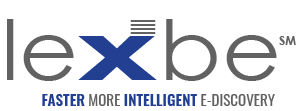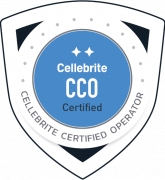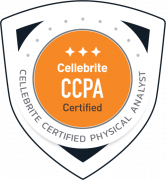Digital Forensics Experts Helping Law Firms Uncover the Truth, Fast, Defensible, and Court-Ready
At Lexbe, our certified digital forensic examiners provide expert digital forensic services, by collecting, recovering, analyzing, and investigating the critical data for your cases.
Over 17 Years of Experience in Digital Forensics for Litigation
With over 17 years of digital forensic experience across thousands of forensic collections, Lexbe forensic investigators support all stages of litigation with expert forensic services. Our team develops a specific plan for efficient, thorough, and defensible forensic collections that help you build your best case.
You’ll find that our forensic team is expertly equipped to handle all aspects of digital forensics, including, forensic acquisition, early case file inventories, forensic analysis, examinations, preservation, reporting, and testimony. Forensic collections can also be seamlessly loaded into the Lexbe eDiscovery Platform for review.
More than 25,000 Devices Supported
More than 3 Million Apps Analyzed
Advanced Cloud Collections from Dropbox, box, Azure, Office 365, G-Suite, AWS, and more
Social Media Account Collections
Windows PCs and Macs, Supported with Comprehensive Analytics for Data Access, Downloads, Transfers
Forensic Collections from Slack, Microsoft Teams, Zoom, Sharepoint, Google Meet, Google Hangouts, Skype, and More
Remote, Targeted, Physical, and Logical Forensic Collections for Affordable and Accurate Evidence Acquisition
Advanced Timeline Features for Rapid Case Building and Evidence Presentation
Digital Forensics for Law Firms
At Lexbe, we utilize advanced forensic tools to ensure we’re able to support your cases and provide in depth forensic investigations. This includes collecting evidence from the broadest set of sources. Some of the tools that we utilize are from the following partners:

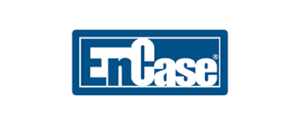




Lexbe also utilizes industry best practices to make sure that the forensic collection is fully defensible. This includes the steps required to preserve metadata as well as a fully documented chain of custody.
Lexbe supports your cases by performing remote and in-person digital forensic collections from a myriad of sources, including:
-
Smartphones
-
Mobile Apps
-
Messaging Apps
-
Cloud Storage Accounts
-
Social Media
-
Messaging Accounts
-
Laptops
-
Desktops
-
Servers
-
External Storage Devices
-
Drones
-
Microsoft 365 Accounts
-
Google Accounts
-
iCloud Accounts
-
Cloud-Based Email Accounts
-
Collaboration Accounts (Ex. Slack, Microsoft Teams)
-
Tablets
-
SIM Cards
-
SD Cards
-
GPS Devices
-
Remote iPhone Collections
-
Live Systems (Internet, Chat, and Multimedia Files)
-
Websites & Webpages
-
And Many More Data Sources
Digital Forensics Expert Witness
Expert Testimony to Support Your Case
Our forensic investigators not only have the credentials and expertise to qualify as experts in the eyes of the jury, but they’re effective in presenting the facts in a relatable way. Lexbe’s team is proven with over 15 years of experience in digital forensic investigations and reporting that helps simplify trial preparation.
Forensic Consultation Request
Used to sign up for a free forensic consultation.
"*" indicates required fields
Lexbe Digital Forensic Investigators are Cellebrite Certified
Our forensic investigators are experts at assembling the digital artifacts, collected from all the relevant sources, and presenting a clear picture of what transpired.
The team of certified forensic investigators at Lexbe utilize digital forensic best practices which enable them to confidently present the facts and handle difficult questions with the utmost integrity.
Trial and Deposition Expert Testimony
Our forensic investigators are experts at assembling the digital artifacts, collected from all the relevant sources, and presenting a clear picture of what transpired.
The team of certified forensic investigators at Lexbe utilize digital forensic best practices which enable them to confidently present the facts and handle difficult questions with the utmost integrity.
Digital Forensic Investigations
Digital Forensic Investigations that Support Your Case
Our forensic investigators are certified digital forensic experts that operate a lab that is equipped with the latest in digital forensic tools that facilitate highly efficient and thorough investigations resulting in a clear understanding of the available evidence for your case.
Lexbe’s team is proven with over 15 years of experience in digital forensic investigations and eDiscovery in support of legal matters. From evidence acquisition, preservation, examination, and presentation to document review, case timelining, and productions, the Lexbe team is expertly equipped to perform defensible forensic investigations that seamlessly support the eDiscovery process and help you build your case.
Lexbe’s Digital Forensic Investigative Stages
Evidentiary Resource Identification
Data Collection
Data Preservation
Data Analysis
Investigative Process Documentation
Reporting
The team of certified forensic investigators at Lexbe utilize digital forensic best practices to ensure a fully defensible investigation in support of your case.
Our best practices include:
-
Proper evidence handling
-
Complete documentation, including chain-of-custody, photographs, and the condition of each device
-
Write blockers that prevent the evidence from being modified during preservation
-
Coordination and strategy development between the requestor and forensic examiners
-
Examinations of forensic images
-
Detailed reporting – delivering all relevant and pertinent information in a clear and concise manner
-
Safe return of the devices
-
Load file creation and loading into the Lexbe eDiscovery Platform
You’ll find that the Lexbe forensic team is expert at stitching together the digital artifacts, collected from all the relevant locations, into a clear picture of what transpired.
Get a Complimentary Forensic Consult
If you have an upcoming matter or have questions about the identification and acquisition of evidence, then drop us a line. We’d be happy to schedule a complimentary call and discuss the matter with you and answer any questions that you have.
"*" indicates required fields
Learn More About Digital Forensics
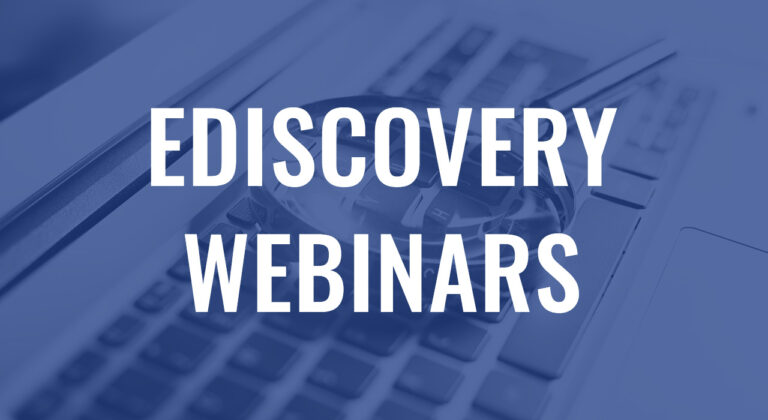
Anatomy of a Forensic Collection from a Smartphone
Learn critical evidentiary insights into smartphones as utilization skyrocketed due to the pandemic and their role in eDiscovery continues to grow.

A Litigator’s Guide to Social Media Forensics
With billions of active users, file sharing, and multi-channel messaging capabilities, social media has rapidly ascended to the top of evidentiary electronically stored information (ESI) for many cases.

A Lawyer’s Guide to Digital Forensics
With the exponential increase in data sources and increasingly tech savvy custodians, digital forensics has quickly come to the forefront in order to identify and collect the evidence required for your cases.
Lexbe Digital Forensics Lab
Located in Austin, TX, the Lexbe digital forensics lab and certified forensic investigators support law firms with evidence collections all over the world.
